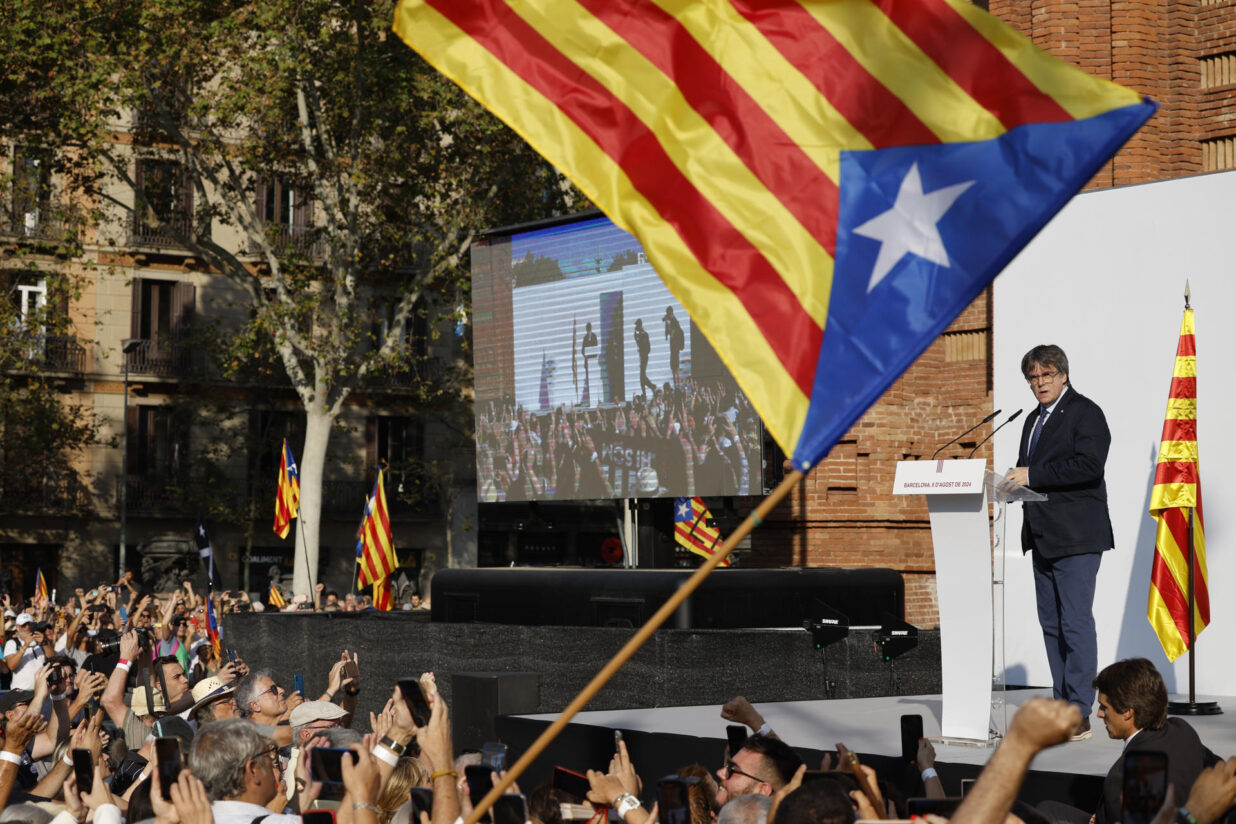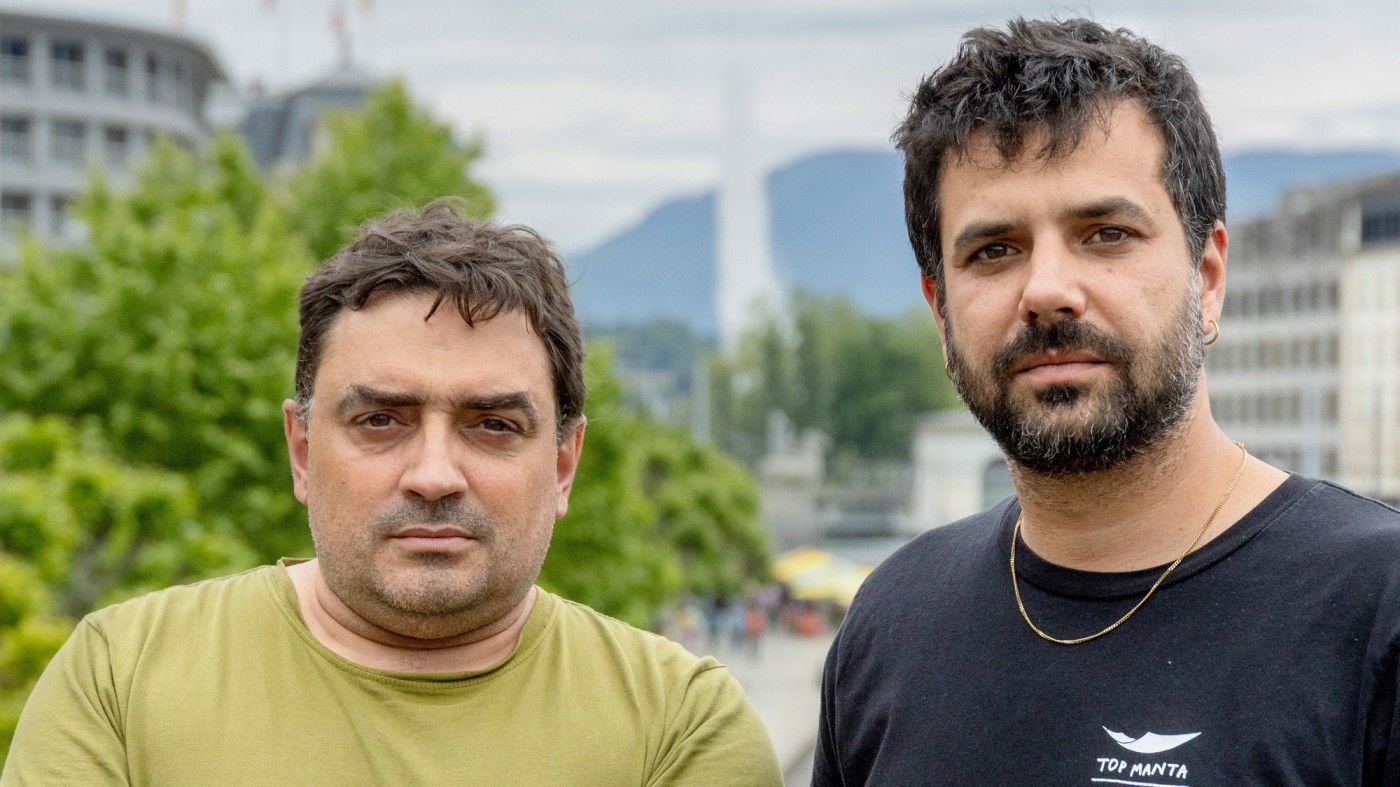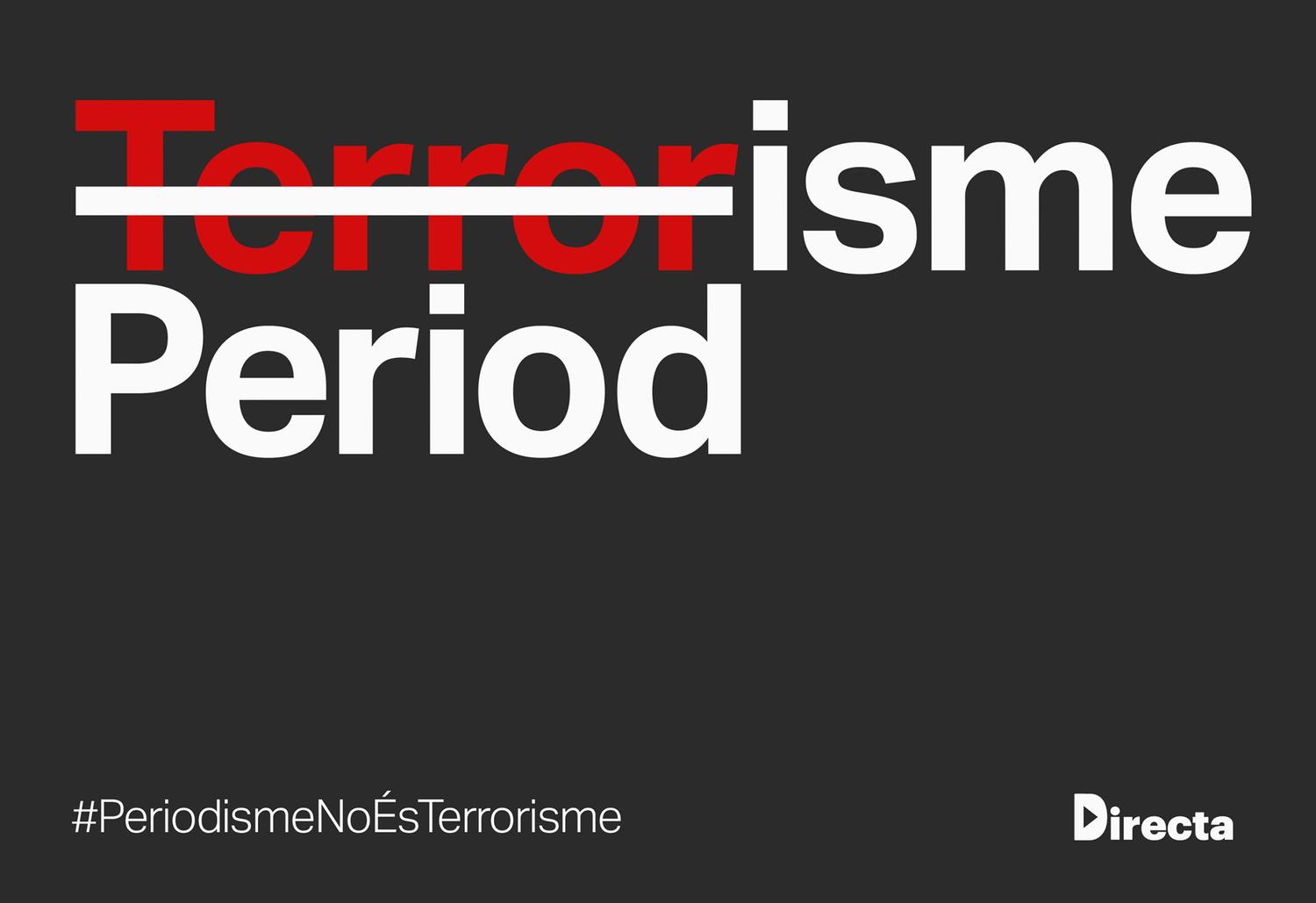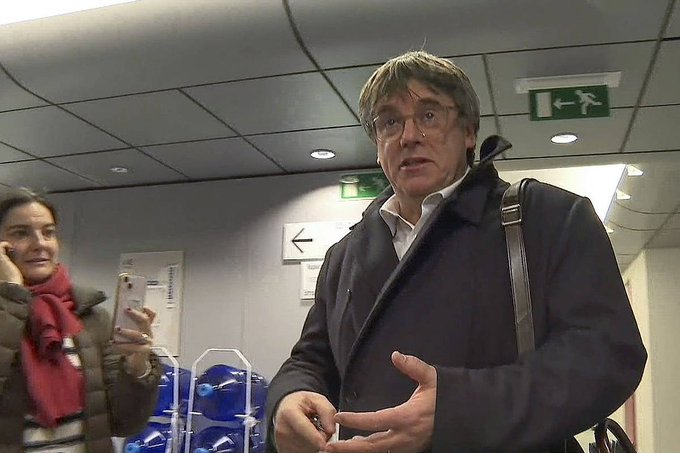Directly to the Catalan Republic... or through 'processism'?
- Catalonia has entered the referendum stage completely. Spain says that it will not be done, the Generalitat says yes. Article 155 has also been brought to the table by the Community of Madrid. The Disconnect Act of Catalonia. And to wear the epic atmosphere: The return of Artur Mas, this time by the courts. One more chapter of processism, some say.
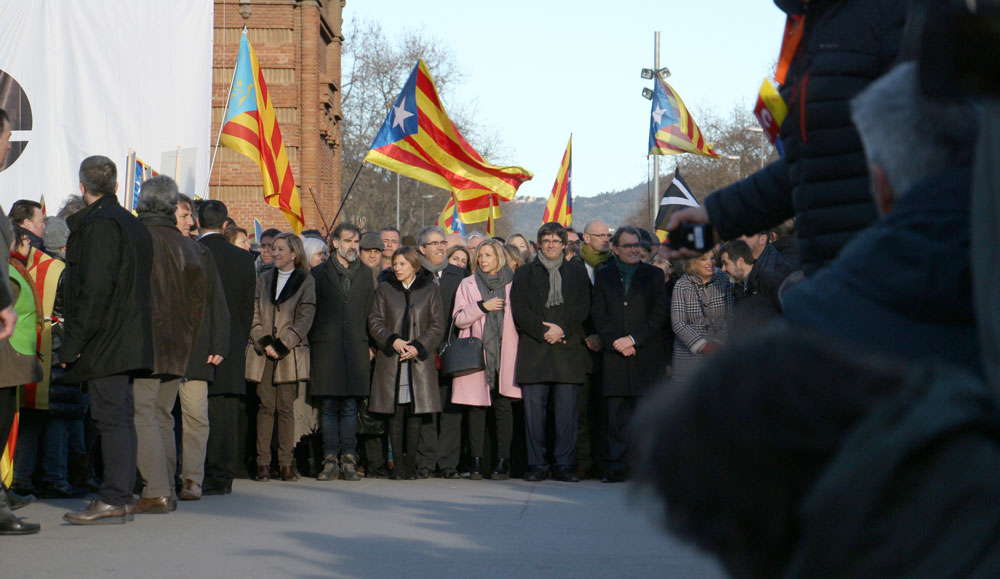
On 28 January, this new door opened to the situation in Catalonia: The Cup approved the budgets of the Generalitat for the financial year 2017 and thus began the era of the referendum. For some, it would be the third stage of the sovereign process. The first was 9 November 2014 and the second was the 2015 plebiscite elections.
The process of independence has therefore entered the referendum corridor, but nobody knows whether it will be done and whether it will be made binding, as pointed out by the Generalitat and the Parliament of Catalonia. There is not enough trust in sovereigns to believe everything. Lehendakari, Carles Puigdemont, however, is talking about this much clearer issue than Artur Mas and did so also in his speech in the European Parliament on 24 January: “We will hold a referendum, yes or yes, if we win with or without the permission of the State and with 50 + 1%, we will proclaim independence.” Stronger maybe, but clearer no.

Article 155 of the Constitution
Once the countdown for the referendum has begun, the Spanish Government has started the political offensive vigorously and has firmly announced that the consultation is not going to take place as it has been up to now. The Spanish Minister of Justice, Rafael Catalá, has said that if the suspension of autonomy were to take place under Article 155 of the Constitution, they will. Knowing the history of Spain, the threat of the words of former ABC director Luis María Ansón is more serious: “It’s scary to think that the pages of the History of Spain can fall back into the blood.” Similar expressions and expressions have now spread to Spanish politics in a way that is very different from what it was a long time ago.
Processism
The doors are open, yes, but in Catalonia many people find it hard to believe that it will materialize. Also within sovereigns. The example of 9 November 2014 is there. It had to be binding, but in the end it was a “participatory process” that would not be official, but that “would have the political value of the referendum”, according to Mas; instead of declaring independence, a plebiscite election was held.
And yet, it was a great event. The independentists, in general, feel that very important steps are being taken, but also a certain degree of pessimism because they are not fulfilled or half-fulfilled.
To this situation, many call it processionism. Joger Palá, coordinator of “The Critic”, is the inventor of the expression and gives it two senses: on the one hand, the Process is always there, always ahead, but never reaching its objectives, covering situations and continually extending the situation; on the other hand, it can also be understood as time of accumulation of forces, it is the time of the Process, it is the time when sovereign forces are using different methods.
Epic return of the masses
The return of former lehendakari Artur Mas to the front line of politics has had an epic tone. The truth is that, for the first time in the state, it is not a joke that the Spanish justice judges a former president of an autonomy. And it is also remarkable that 50,000 people accompany the three defendants – Artur Mas, Irene Rigau and Joana Ortega – to the door of the courts.

“On the street, proud but humble before the judge,” the unionists say; “It has a people behind,” the independentists; and there is also solidarity, but not a hobby: "It is not a good defense strategy to reject this act of disobedience before the Supreme Court," the Cup stressed in a statement. But he has assumed all the political responsibility of the referendum, but he has evaded the legal responsibility: In Mas’s words, “the Constitutional Court did not give them the right order to stop the referendum” and, therefore, did not disobey anything.
Disabling would not be a joke for your party, Mas and the PDECat, and this option can accelerate many moves in chess play. But independence insists that in Catalonia it would be more important than the disqualification of Mas the dismissal of Carme Forcadell, because in the end Mas is no longer in office and Forcadell is president of Parliament.
You can hear and read about everything about the situation in Catalonia and you have to be very careful to absorb one or the other, but there are some main trends for the future; the opposite will be whether they are fulfilled or not. In these tendencies, Forcadell's disqualification is taken for granted, and in response independence can hold the referendum from the summer onwards. The Generalitat has also made it public that that would be an option.
It takes institutions to organise the referendum and, if it is to be expected in September, the independentists can be left without institutions to hold the referendum; and then to proclaim independence, which is the next step after winning the yes.
Disconnection Act
By the end of December, Junts Pel Yes and the CuP announced that they had reached an agreement on the Disconnect Act. This paragraph is as key as the referendum and will have to enter into force thereafter. It is quite advanced and by 1 July it will be completely ready. Its aim is not to leave a legal vacuum on the path of autonomy towards the Catalan Republic. In short, the entry into force of this Act is a declaration of independence. This is what his first article says: “Catalonia has become a democratic and social Republic.”
When the agreement was announced, the nine fundamental titles at the corner of the law were also granted: “General provisions; nationality and territory; succession of ordinances and administrations; rights and duties; institutional system; judiciary and administration of justice; finance; referendum of independence; constituent process; final and inapplicable provisions”.
And why is it banned if the referendum is not held? So, independentism would base its legitimacy on that in order to implement the Disconnect Act. Therefore, in the next summer or autumn this law would come into force, yes or yes, if autonomy remains in force.
In short, sovereigns believe that the path of repression will bring many people into its realm, especially that of En Comú, which will be formed politically this spring. In view of the referendum, the greatest challenge for the independentists today is to capture that space or much of it in view of the success of the consultation.
Nor can the holding of early elections between the referendum and the Disconnect Act be ruled out, especially if there is no possibility of holding a referendum. There would be the accumulation of images of Mas, because Puigdemont has already announced that he will not be lehendakari again. However, current surveys place PDECat fifth. Former lehendakari Jordi Pujol, for example, sees Oriol junqueras as lehendakari, especially if Mas is disabled: “Then he has become his,” he says in a colloquium with several young people.
List without President
Analysts like Enric Juliana see it clear that there will be no referendum and that the elections will be brought forward again. But this time it would be very difficult to repeat the play of Junts Pel Yes and each one would go with their acronyms to the polls. As a last bullet, independence will always be left with the “lehendakari list” that had already been proposed by several institutions for the elections in September 2015, but which did not have enough strength: all independence would be presented in a single list, but it would be made up of familiar people and not politicians.
However, if an absolute majority is achieved, instead of designating the lehendakari, Parliament would be dissolved and new elections would be called, and now, yes, each party would come forward with its draft. A referendum like the first and constituent elections like the second. And all this avoiding a violent confrontation with Spain.
The conflict of legitimacy is evident on the horizon, but it is not known how it will explode: Spain has the full instrumentation of a strong state, the strength of its rule of law; Catalonia, the democratic legitimacy of its citizens. To the extent that the independentists are able to demonstrate that this legitimacy increases, the new Republic will be closer. If the current situation continues to prolong, independence will erode.
Walk from a train station, two friends and a hug. This hug will be frozen until the next meeting. I'll come home, he'll stay there. There, too, will be free the painful feeling that injustice wants us to catch. Jesús Rodríguez (Santa Coloma de Gramenet, 1974) is a journalist,... [+]











